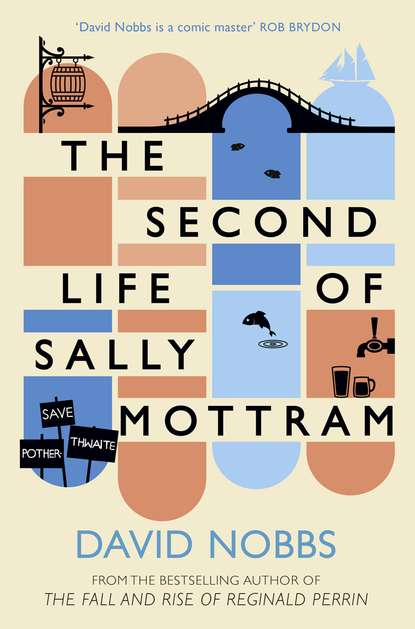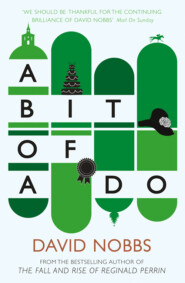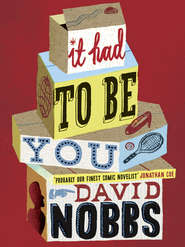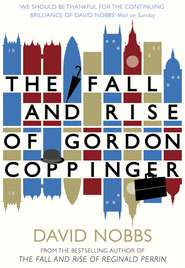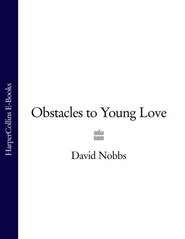По всем вопросам обращайтесь на: info@litportal.ru
(©) 2003-2024.
✖
The Second Life of Sally Mottram
Автор
Год написания книги
2018
Настройки чтения
Размер шрифта
Высота строк
Поля
‘Peter and Kenneth.’
‘Oh. No no. Kenneth’s a Labrador.’
PC Cartwright had looked astonished, then shocked, then just bewildered. She had entirely forgotten that she had been to an afternoon seminar on Not Making Assumptions at a moated country house outside Droitwich in 2009. And if she had remembered that she had been, she would still have forgotten what she had learnt.
‘P’r’aps you should just wait a moment at the gate, love,’ PC Cartwright had said, when they arrived at the Sparlings’ house. ‘Best for me to explain, p’r’aps.’
So Sally had stood in the cold at the gate of ‘Ambleside’, and had endured the unpleasant experience of watching two people discussing her, and wondering what had been said when Peter Sparling had shaken his head, and when PC Cartwright had suddenly turned round to have a look at her by the gate.
Then they had shaken hands and Peter had come striding over the cut grass.
‘Sally! Sally! I am so sorry,’ he’d said.
‘Thank you.’
‘Come in. Come in.’
‘Thank you. Thank you.’
‘Will you be all right, lovey?’ PC Cartwright had asked.
‘I’ll be fine. Thank you.’
Sally was going to be brave. She wasn’t even going to be upset by this woman she had never met before calling her ‘lovey’.
‘We’ll come and let you know when it’s all right to go back.’
‘Thank you.’
‘Not long, I wouldn’t think.’
‘Thank you.’
‘Purely routine, lovey.’
‘Thank you.’
Myfanwy and Peter Sparling had made Sally comfortable by the roaring fire, and had plied her with gin and tonic. Myfanwy, who talked like a mountain stream, had found more words for ‘sorry’ than most people even knew. Sally had told them of PC Cartwright’s confusion over Kenneth. They’d had to laugh. In fact Sally had laughed too, and in that charged moment the laughter had become hysterical, and then, just as the laughter had died, Kenneth had farted, and none of them had been able to look at each other. They had controlled themselves heroically, and in the flat silence that always follows hysterics, Peter and Myfanwy had apologized for laughing, and Sally had said, ‘No, please. I wanted you to laugh. That’s why I told you. Life must go on.’
And she had thought, ‘Must it?’ Back home all alone now she recalled that moment and she thought, ‘Must it? But how? How can it?’
After that, they had talked soberly. The Sparlings had raised Barry to something only just short of a saint, the question of why he had done it had been raised but not answered, and Sally had said, ‘But why didn’t he leave a note?’ with such force that even Myfanwy had made no attempt to provide a facile answer. Sally had seen that Myfanwy was very close to tears, the easy yet genuine tears of South Wales. Myfanwy had lowered the emotional tension but only slightly by saying, ‘I can’t believe that only … what would it be? … four hours ago … Peter and you were talking quite casually having no idea what had happened. I can’t get my head round it.’ And then they had reminisced about a trip the four of them had made to Whitby for fish and chips at the Magpie, and they had agreed that they should have done that sort of thing more often, but you don’t know what’s going to happen, do you? That’s right, you don’t. Just as well, perhaps. And Peter had said, ‘I can’t get my head round it either, Sally. There we were, you and I, talking about the weather …’ a frown had passed across his face as he’d remembered Sally’s strange comment about lightning and tsunamis ‘… and we had no idea what had happened,’ and all the time Sally had been wondering, underneath the talk and the socializing and the memories and the gin and tonic and the log fire, how far they had got at ‘The Larches’, whether they had taken Barry down yet.
Father Time is a playful patriarch. Sally would have said that they had been sitting there for two hours at least, but it turned out that it had only been just over an hour before PC Cartwright had come to tell her that it was all right for her to go home.
She hadn’t wanted to have to talk any more. There was nothing anybody could do. The rest of her life was up to her now, though of course she had no idea of the immense consequences of that thought. But she hadn’t liked to leave straight away. Even at this dreadful moment that would have seemed like a betrayal of the social code here in the posh end of Potherthwaite.
At last she had decided that it would be all right to leave. The Sparlings had insisted on escorting her home, and she had been glad of that. The street lamps in Oxford Road were few and dim, and there was no chance of the moon breaking through the thick motionless clouds.
They had offered to come in. They had invited her to collect a few things and go back and stay with them for the night, and she had known that they had meant it most sincerely. It had been tempting, and she had very nearly agreed.
Now that she stood, all alone in her sitting room, all alone in the house, she felt hugely grateful to the Sparlings, but she would resist the temptation to go back. She could hardly bear to stay in the house on her own, though. Was there anywhere else she could go?
Of course there was.
There was even a place to which she wanted to go.
There was a place to which she must go.
FOUR (#ulink_b8c77d4d-4952-5e9b-a16c-8d619bd01a1c)
A lovely evening (#ulink_b8c77d4d-4952-5e9b-a16c-8d619bd01a1c)
Olive’s heart sank at the sight of the dining table. Jill had laid it beautifully, and it was lit by two tall candles in handsome, gleaming candlesticks. The room was quite small, with pale green wallpaper. Smart red curtains covered the French windows that led to the back garden. There were six decanters on the sideboard. She would never match this.
She caught Arnold’s glance and had an uneasy feeling that he could read her mind.
She didn’t like the starter, which was a peach stuffed with a mixture of yoghourt and mild spices. She didn’t like peaches or yoghourt, she didn’t like mixtures, and she didn’t like mild spices, although she didn’t dislike them as much as she disliked spices that weren’t mild. It crossed her mind that they would need to find a good doctor pretty quickly. She would miss Dr Renwick. She hoped Harry wouldn’t ask them who their doctor was. They would have to go to him, if he did, and she didn’t want the state of her kidneys to become public knowledge throughout the cul-de-sac.
‘This is just something rustled up from the store cupboard,’ said Jill.
‘It’s delicious,’ said Olive. ‘How clever of you to be able to rustle things up.’
Harry gave her his ‘don’t overdo the compliments, it’s a form of running yourself down’ frown, and of course, now that she had said it was delicious, she would have to eat every mouthful.
‘I always eat slowly when I love things,’ she said.
Harry gave her his ‘when you’re in a hole, don’t dig’ frown.
The others had finished. She could hardly get it down. To help herself get through it she thought back to that brief romance forty-eight years ago. Well, not so brief. A few months. But a few months in which they’d had so much shyness and ignorance to overcome, so many inhibitions to let out, that it had never reached its climax, or any climax. She wondered what her life would have been like if she had married Arnold. She wasn’t attracted to him now. She couldn’t imagine life with him. She felt that she ought to say something, and was on the point of asking him if he’d ever been back to Cheltenham, when she realized that this question would have let the cat well and truly out of the bag.
In their brief, urgent, almost whispered chat, back in the chandeliered lounge, while Harry had helped Jill fix the drinks, after consideration of the fact that it was a small world, after the horrified realization that they had last seen each other forty-eight years ago, after the lies about how kindly time had treated them, Arnold had made it clear that he didn’t want to tell Jill and Harry about it. She had thought this unwise. There was nothing to hide, so why hide it? She would have been horrified if she had known his reason, which was partly mere laziness and dislike of emotion past, present or future, but also at least a touch of shame. Olive was not now a trophy about whom one would boast.
At last, in the chandeliered dining room, she had finished her starter. She smiled at the company. It was evident to them that the smile was hard work.
‘Delicious,’ she said.
‘I’ll get the main course.’
Harry and Olive both realized that Arnold wouldn’t lift a finger. He’d been Head of History for twenty-nine years, after all. The fact that there had only ever been one other teacher in the department, and he had been either on work experience or a supply teacher, was of no account. Arnold had gone down in history as Head of History. He had thought it a great job in this modern world – to be paid to live in the past.
Harry waited a few seconds – he was not entirely insensitive, despite what people said – and called out, ‘Can I help?’
‘Thank you,’ called out Jill from the kitchen.
Harry hurried off, and a curious thing happened. Both Arnold and Olive realized that they had nothing whatsoever to say to each other. They couldn’t analyse their months of ‘walking out’ as it had been called in those distant days. It had been enjoyable, they had both felt romantic at times, but nothing worth recalling had happened. Do you remember the day we got the dates mixed up and went to the wrong film? Do you remember that French restaurant where we didn’t know what globe artichokes were and had to be shown how to eat them? Do you remember when I snagged my stockings on the door of the taxi? It was not the stuff of rich reminiscence.
Nor was ‘So what have you been up to?’ likely to yield a great harvest.





